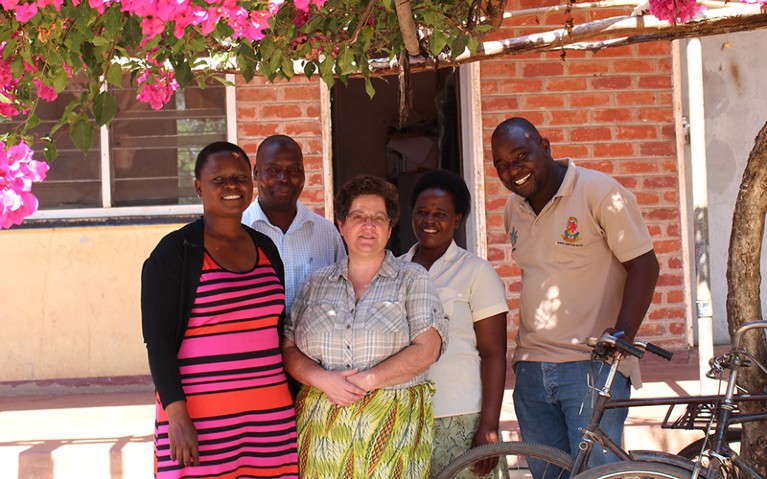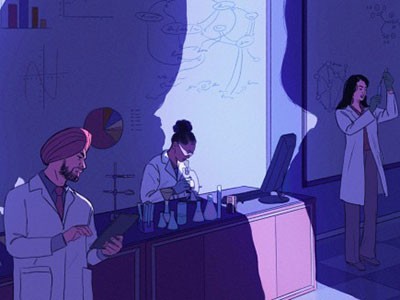
Crop scientist Sieglinde Snapp (centre), with research partners in Malawi, promotes co-authorship.Credit: Vicki Morrone
Working for an international research organization that studies global food production, I think we, as an organization, need to change the reward structure. The current one tends to reward pure science first, then applied research and outreach — and it tends to exclude the global south, because much of work there is more locally contextualized and applied. Decolonization should go beyond simply citing colleagues from developing countries to including them in conferences and as co-authors, especially if we are creating knowledge together. According to a 2021 study, only 16% of articles in high-profile development journals were authored by researchers exclusively based in the global south; 73% of authors came from the global north (V. Ammarante et al. Appl. Econ. Lett. 29, 1659—1664; 2021).
In my own field of crop science, as a white researcher from the United States, I have championed inclusivity in a couple of ways. One is a participatory research approach linking Indigenous scholars to conventional science through engagement. Participatory research creates new knowledge — it’s an approach we wouldn’t have found without engaging with farmers over many years.
I’ve studied rain-fed cropping systems alongside colleagues in sub-Saharan Africa, notably Malawi, Zimbabwe and Tanzania, throughout my career. Those colleagues are not invited by their white, Western collaborators to speak at big conferences or to co-author high-profile papers in agriculture. My colleagues at the International Maize and Wheat Improvement Center (CIMMYT) and I hope to reverse this trend by advocating for decolonization through authorship. As a start, my team of researchers will include a paragraph about what each author did, and how the team paid attention to gender and global-south inclusivity in publications.
Most of the 13 agricultural gene banks and research centres in the global research partnership CGIAR, including CIMMYT, use the h-index for performance evaluations. It is a metric of a scientist’s productivity and influence, prioritizing top publications. Alternative indices, such as Google Scholar, which includes outputs such as book chapters, can be less elitist and include a wider range of viewpoints.
Agricultural research is steeped in colonial attitudes in many ways, too. For example, many programmes focus solely on higher crop yields, rather than including the nuances of resource stewardship, such as how using perennial crops improves soil health at the cost of lower yields. By conducting agricultural research that involves scholars from the global south, we can better address a broader range of production and sustainability goals.
I’m also making the case at CIMMYT that performance evaluations reward sharing data sets and information with and between communities quicker. I’m excited to see things like Digital Green, a Microsoft product that shares everything from weather to market data with farmers and farmer educators equitably and swiftly. This is part of decolonization in my view. Rather than, say, top-down fertilizer recommendations from experts, this offers a way to connect people so they can share information more directly in a local context.


 Decolonizing the biosciences: Turning lip service into action
Decolonizing the biosciences: Turning lip service into action
 Imperialism’s long shadow: the UK universities grappling with a colonial past
Imperialism’s long shadow: the UK universities grappling with a colonial past
 Diversity in science: next steps for research group leaders
Diversity in science: next steps for research group leaders








